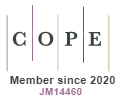The paradox of the attendance to adolescents in confl ict with law in times of reconstruction of relationships between children, young people and adults
DOI:
https://doi.org/10.5585/dialogia.v5i0.892Keywords:
Adolescente. Criança. Estatuto da Criança e do Adolescente.Abstract
In this article, we will emphasize the paradox that represents Febem -SP, with its repressive and prisoner culture, here understood like the most perverse symptom of a society which relates to the youth in an ambiguous way. If, in one hand, we can see the exaltation of this stage of life, translated by the cult to youth, in the other, we can ascertain that the Brazilian society creates mechanisms of expulsion and punishment for young people, which compromise their entry in adult universe. The adolescence, in Brazil, especially in the state of São Paulo, is a preferential target, in proportion that, on it, fell not only the expectations of a promising future, but also the charges for entries and personal success, in spite of politics insuffi ciency for youthful population which does not have offers in elemental areas for its development, like health, leisure, culture, professional formation and education.Downloads
Download data is not yet available.
Downloads
Published
2008-04-02
How to Cite
GRANDINO, Patrícia Junqueira. The paradox of the attendance to adolescents in confl ict with law in times of reconstruction of relationships between children, young people and adults. Dialogia, [S. l.], v. 5, p. 101–110, 2008. DOI: 10.5585/dialogia.v5i0.892. Disponível em: https://periodicos.uninove.br/dialogia/article/view/892. Acesso em: 22 dec. 2024.
Issue
Section
Artigos






